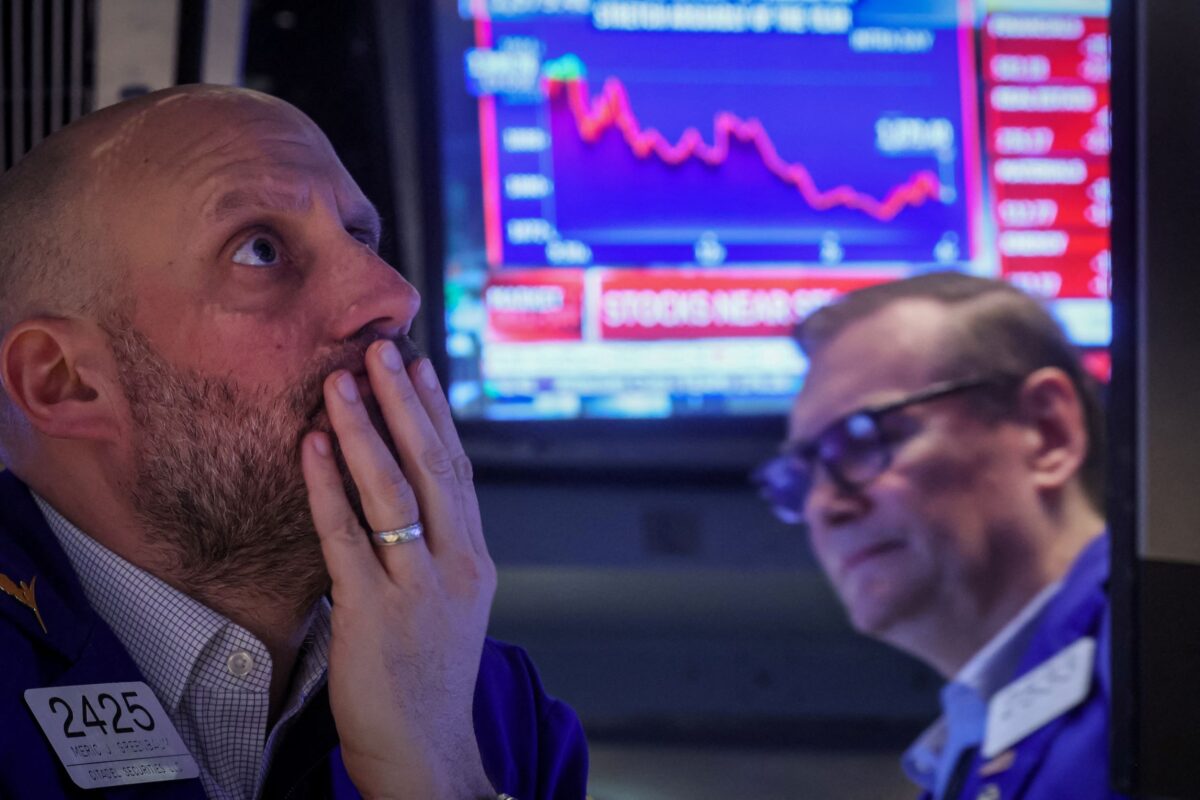


Morgan Stanley’s top investment officer has warned that investors shouldn’t see the bailout of Silicon Valley Bank’s uninsured depositors as a reason to get bullish on stocks, predicting a “vicious” final stretch to the current bear market marked by sharp price declines and few opportunities to hedge portfolios against losses.
The lightning-fast collapses of Silicon Valley Bank (SVB) and Signature Bank sparked fears of contagion and prompted the Federal Reserve to roll out an emergency lending facility for banks and led the Federal Deposit Insurance Corporation (FDIC) to waive its $250,000 deposit insurance cap and provide blanket coverage to all depositors at the failed institutions.
The Fed’s balance sheet expanded by $297 billion, to $8.63 trillion for the week ended March 15, undoing months of the central bank’s efforts to shrink its balance sheet.
This has prompted some investors to question whether the Fed has restarted its quantitative easing (QE) program, which was first initiated after the financial crisis of 2008–09 and involved buying assets like government bonds to inject liquidity into the financial system.
But experts say the Fed’s recent balance-sheet expansion is mostly related to banks taking short-term loans from the Fed to help them manage liquidity risks and guard against bank runs.
“Swaps don’t remotely resemble QE, especially with the threat of systemic risk lurking,” analyst Danielle DiMartino Booth stated in a tweet addressing questions of whether the Fed’s newly created Bank Term Funding Program (BTFP), the liquidity lifeline that lets banks borrow against their holdings of Treasurys on preferential terms, which amounts to quantitative easing.
Mike Wilson, Morgan Stanley’s chief U.S. equity strategist and chief investment officer, said in a note Monday that stock market investors have been wondering if the Fed’s and the FDIC’s actions amount to another form of QE “and therefore ‘risk on.'”
Wilson believes it’s not the same as QE and won’t juice markets like some investors expect.
“We argue it’s not, and instead represents the beginning of the end of the bear market as falling credit availability squeezes growth out of the economy,” Wilson wrote in the note, which was first reported by Bloomberg.
He argued that the benchmark S&P 500 Index won’t be attractive for investors until equity risk premium climbs substantially from its current level of around 230 basis points.
“The last part of the bear can be vicious and highly correlated,” Wilson wrote in the note. “Prices fall sharply via an equity risk premium spike that is very hard to prevent or defend in one’s portfolio.”
Wilson’s warning to investors Monday follows advice last week recommending that they sell any rebounds in stock prices that may follow regulatory support measures for the U.S. banking sector after the twin failures of SVB and Signature.
“We suggest selling any bounces on a government intervention to quell the immediate liquidity crisis at SVB and other institutions until we make new bear market lows, at a minimum,” Wilson wrote in a note.
He wrote that he does not believe the issues with SVB and Signature Bank are indicative of a wider systemic problem in the U.S. banking sector.
A market-based indicator of stress in the U.S. banking system jumped on Monday to its highest level in three months, as turmoil from the twin collapses has shaken regional lenders.
The so-called FRA/OIS spread, which is used to gauge U.S. banking sector stress, jumped to 18.2 basis points on Monday, from closer to 12 basis points last week, hitting its highest level since Dec. 22, 2022. The FRA/OIS spread measures the gap between the U.S. three-month forward rate agreement and the overnight index swap rate.
Meanwhile, banking stocks and bonds fell sharply on Monday as investors digested news that banking giant UBS had taken over beleaguered rival Credit Suisse in a government-backed emergency rescue announced Sunday.
The buyout deal sees UBS buying the 167-year-old Credit Suisse for around $3.23 billion and absorbing up to $5.4 billion in losses.
Credit Suisse is among 30 financial institutions known as globally systemically important banks, and authorities worried that its failure could undermine broader financial system stability.
“An uncontrolled collapse of Credit Suisse would lead to incalculable consequences for the country and the international financial system,” Swiss president Alain Berset said Sunday as he announced the deal, which he described as “one of great breadth for the stability of international finance.”
An emergency ordinance was required to allow the UBS–Credit Suisse merger to go ahead without shareholder approval.
Credit Suisse shares plunged around 60 percent to a fresh record low on Monday, while UBS stock price slid around 10 percent, though shares of the latter clawed back some of the losses and were down just over 3 percent as of the time of reporting.
UBS chairman Colm Kelleher said in a statement that the merger is “attractive” for UBS shareholders and the deal cements the institution’s position as a leading asset manager in Europe.
“This acquisition is attractive for UBS shareholders, but let us be clear, as far as Credit Suisse is concerned, this is an emergency rescue,” he said.
“The transaction will bring benefits to clients and create long-term sustainable value for our investors.”
